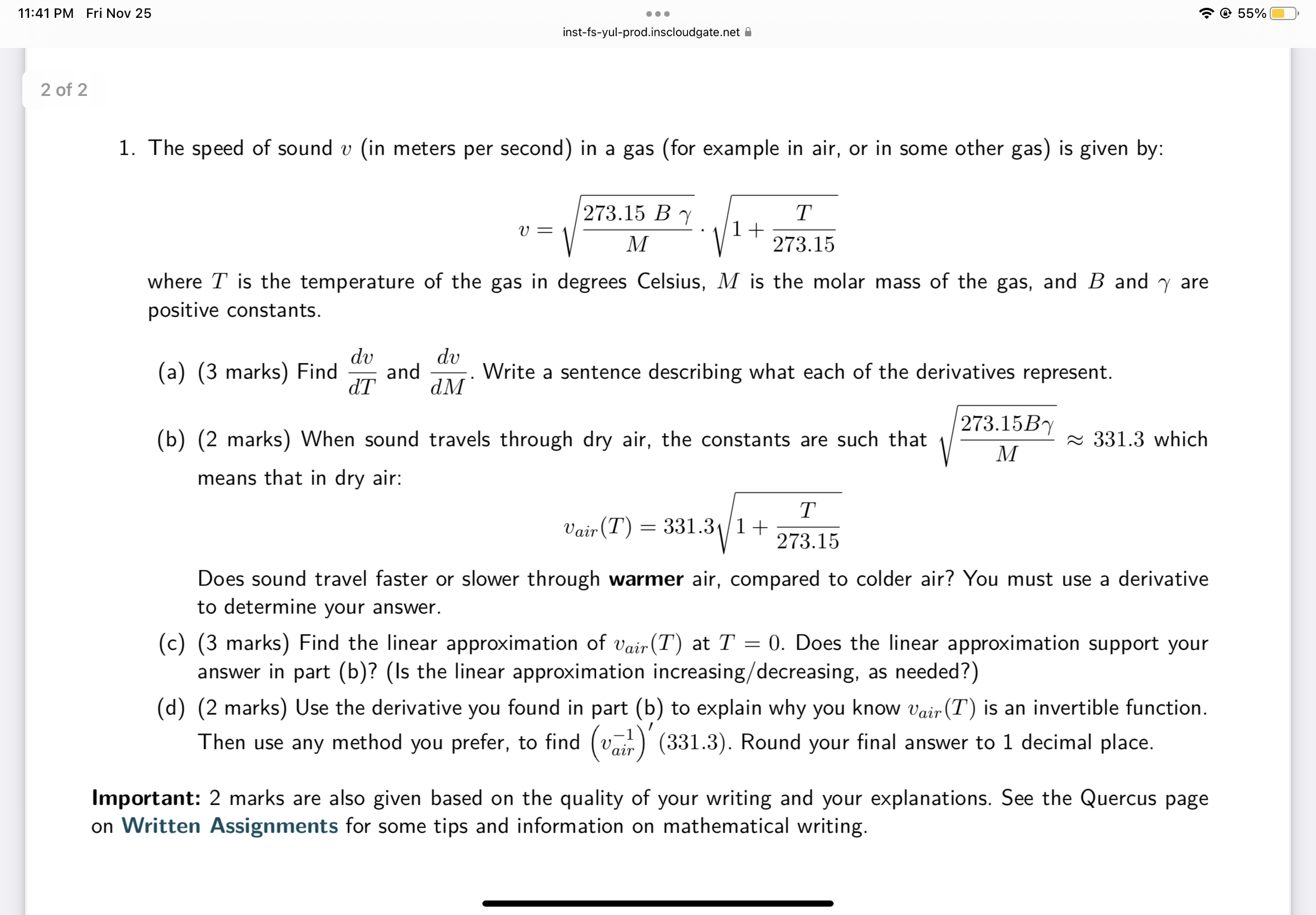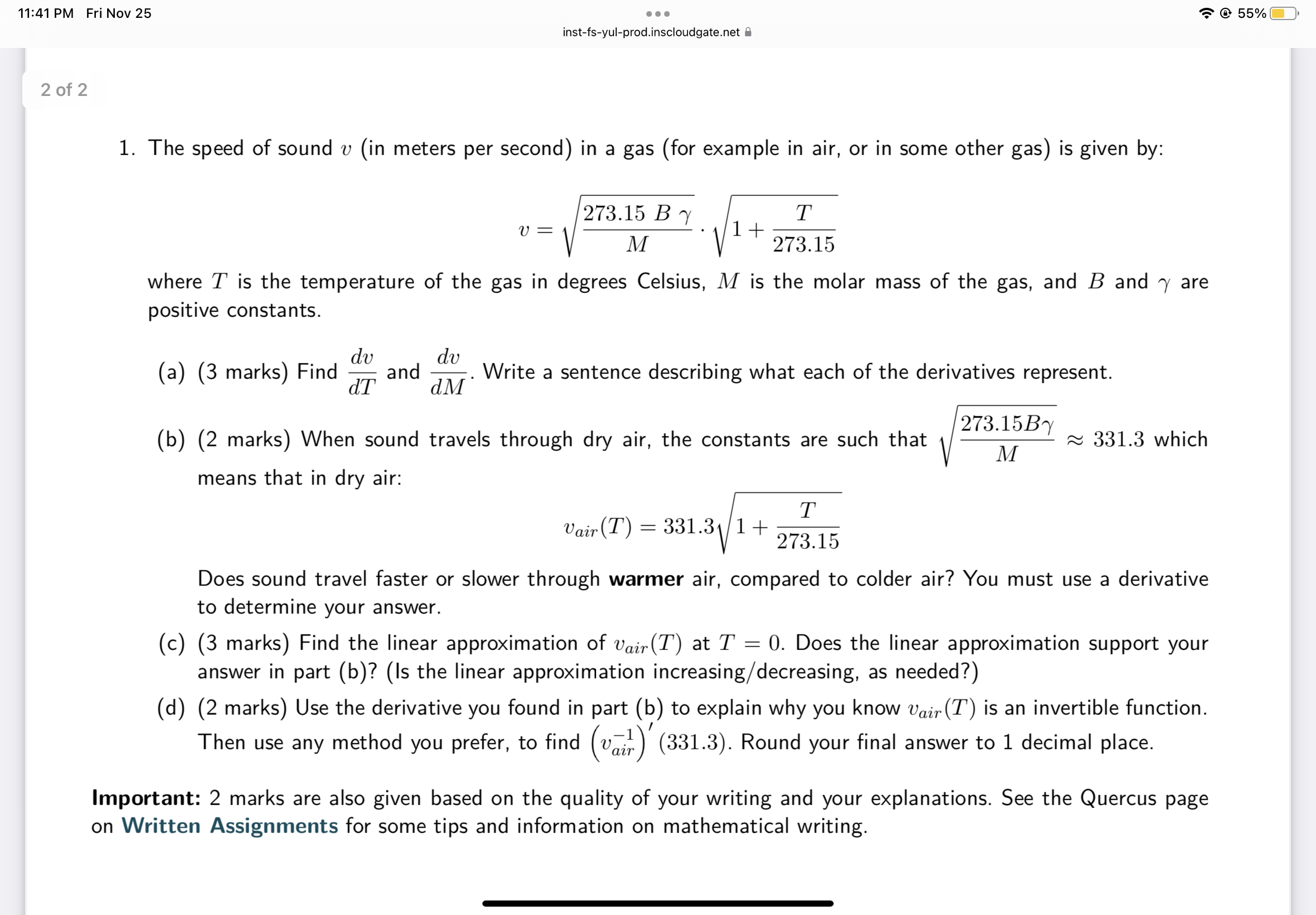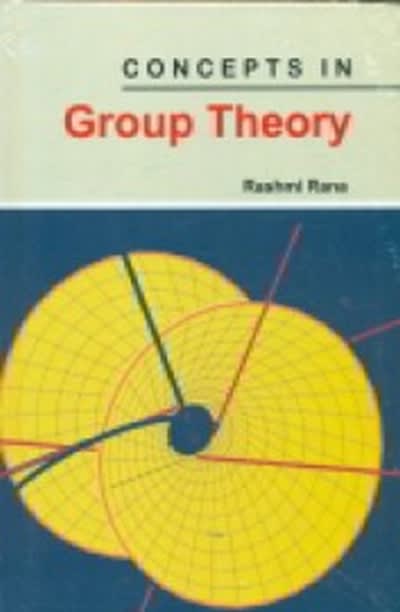Answered step by step
Verified Expert Solution
Question
1 Approved Answer
11:41 PM Fri Nov 25 .o. '-:~' @ 55%(3. inst-fs-yu|-prod.insc|oudgate.net E 20f2 1. The speed of sound U (in meters per second) in a gas


Step by Step Solution
There are 3 Steps involved in it
Step: 1

Get Instant Access to Expert-Tailored Solutions
See step-by-step solutions with expert insights and AI powered tools for academic success
Step: 2

Step: 3

Ace Your Homework with AI
Get the answers you need in no time with our AI-driven, step-by-step assistance
Get Started


